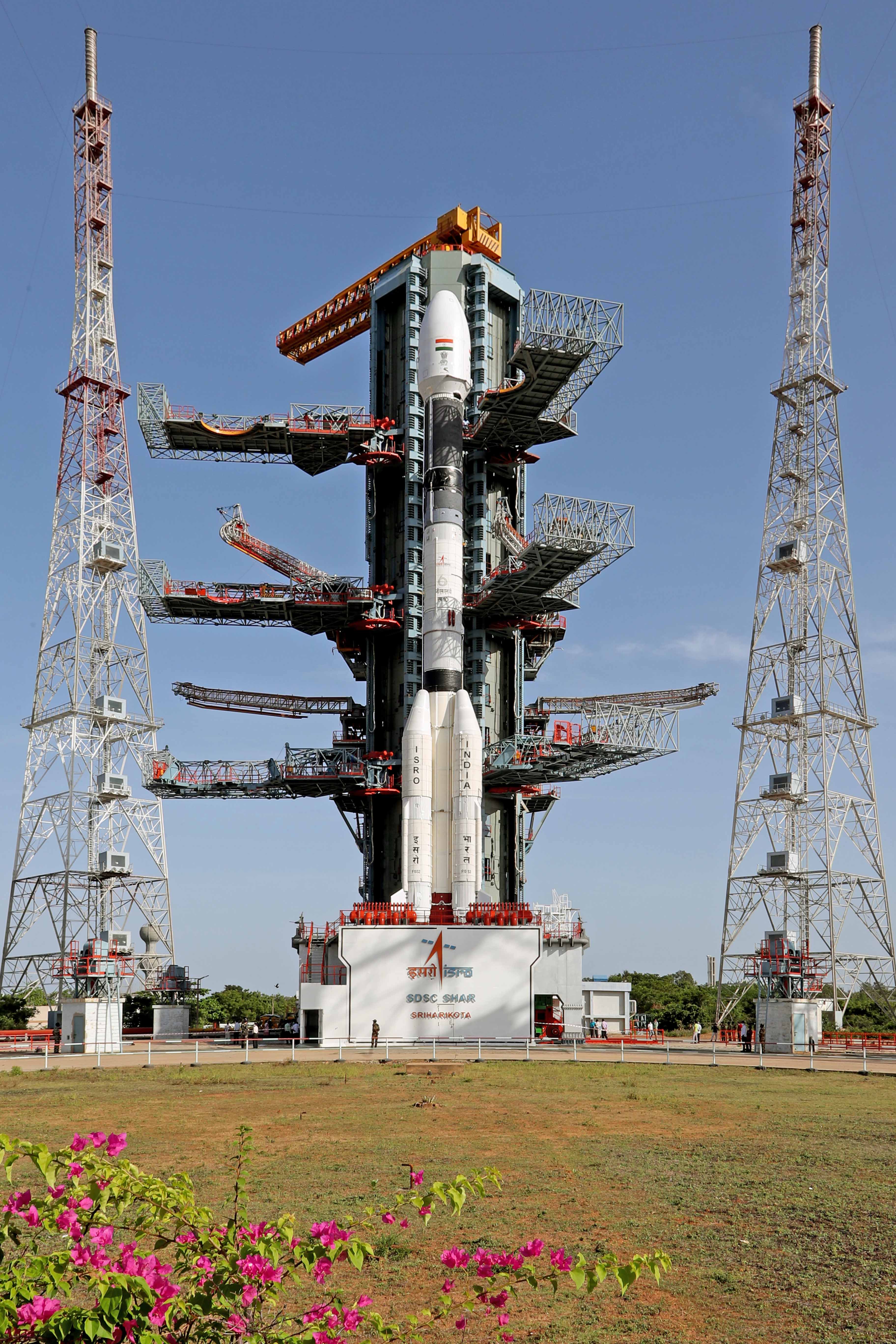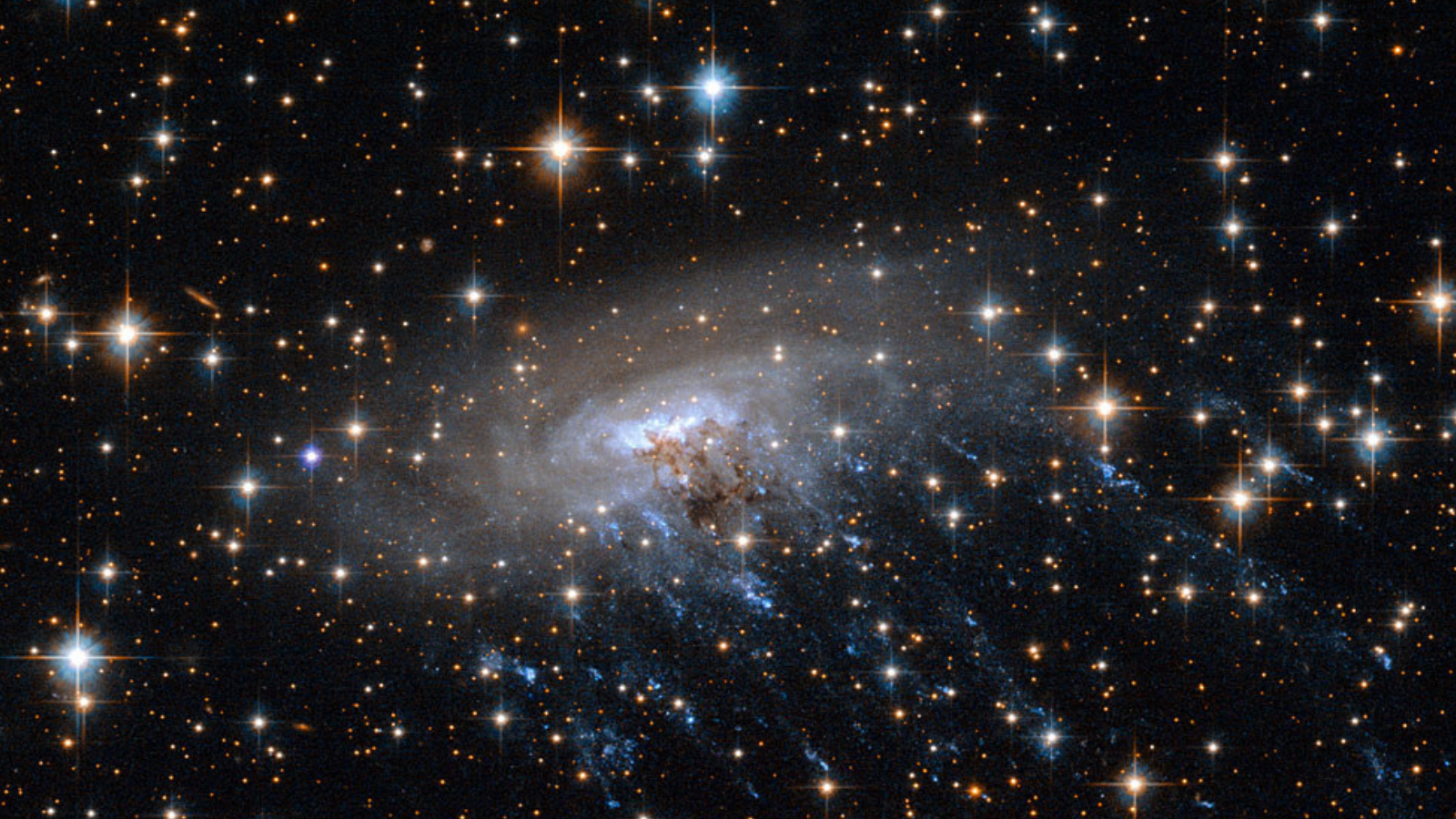India to launch new Earth observation satellite tonight. Here's how to watch live.
EOS-03 will watch for natural disasters along with crop health, perched in geosynchronous orbit
Breaking space news, the latest updates on rocket launches, skywatching events and more!
You are now subscribed
Your newsletter sign-up was successful
Want to add more newsletters?

Delivered daily
Daily Newsletter
Breaking space news, the latest updates on rocket launches, skywatching events and more!

Once a month
Watch This Space
Sign up to our monthly entertainment newsletter to keep up with all our coverage of the latest sci-fi and space movies, tv shows, games and books.

Once a week
Night Sky This Week
Discover this week's must-see night sky events, moon phases, and stunning astrophotos. Sign up for our skywatching newsletter and explore the universe with us!

Twice a month
Strange New Words
Space.com's Sci-Fi Reader's Club. Read a sci-fi short story every month and join a virtual community of fellow science fiction fans!
Update for 9:34 pm ET: India's launch of a GSLV rocket carrying the EOS-03 Earth observation satellite has failed. The rocket suffered a catastrophic failure while firing its third stage leading to the loss of the vehicle and its payload. Read our full story here.
India will send a new Earth observation satellite to space tonight (Aug. 11) to keep an eye on natural disasters, agriculture and forestry regions.
The India Space Research Organisation (ISRO) is scheduled to launch a Geosynchronous Satellite Launch Vehicle (GSLV) carrying the the EOS-03 satellite from the Satish Dhawan Space Centre in eastern India, near the Bay of Bengal, at 8:13 p.m. EDT (0013 GMT or 5:43 a.m. local time Friday, Aug. 12.) You can watch the launch live on this page, as well as on the ISRO website and YouTube channel at liftoff time. The webcast will begin at 7:40 p.m. EDT (2343 GMT).
The GSLV rocket is expected to place the satellite into a preliminary transfer orbit, and EOS-03 is expected to boost itself to geosynchronous orbit in the following days.
ISRO officials describe EOS-03 as a "state-of-the-art" Earth observation satellite with three main objectives: near real-time imaging with frequent revisits to the same region, monitoring natural disasters and other short-term events, and picking up spectral signatures for agriculture and forestry to monitor items like crop health.
Related: India's human spaceflight plans coming together despite delays
Wednesday's launch will be the fourteenth for the GSLV rocket type, which Indian news sources best remember as the launch vehicle for Chandrayaan-2, India's second lunar exploration mission that launched successfully from the same center in July 2019. While the combination lander-rover crashed during a landing attempt, the orbiter is still working well as it continues the search for lunar ice.
Breaking space news, the latest updates on rocket launches, skywatching events and more!
EOS-03 was delayed due to the ongoing coronavirus pandemic, which forced engineers and scientists to work remotely, according to an India Today report. ISRO is trying to recover its footing and to launch more frequently in the coming months, the report added, with EOS-04 expected to launch in September. The September mission will include synthetic aperture radar to peer through clouds, and will launch aboard a Polar Satellite Launch Vehicle (PSLV).
Related: India looks beyond the moon to Mars, Venus and astronaut missions
EOS-03 will be ISRO's first satellite launch since Dec. 17, 2020 when the CMS-01 communications satellite went to space, according to agency data. ISRO completed three launches in 2020 in January, November and December; the pandemic erupted that March.
ISRO also plans to launch a three-stage solid rocket called the Small Satellite Launch Vehicle (SSLV) by the end of 2021, India Today noted. The SSLV will be able to launch payloads to polar orbit or to sun-synchronous polar orbit (meaning that any satellite would have consistent lighting conditions below.)
Along with launching EOS-03, the GSLV will mark its first flight with a 13-foot (4-meter) payload fairing on board. The fairing will allow the rocket to accommodate larger payloads, ISRO stated.
Correction: An earlier version of this story included an incorrect launch time. It is 8:13 p.m. EDT, not 8:43 p.m. EDT.
Follow Elizabeth Howell on Twitter @howellspace. Follow us on Twitter @Spacedotcom and on Facebook.

Elizabeth Howell (she/her), Ph.D., was a staff writer in the spaceflight channel between 2022 and 2024 specializing in Canadian space news. She was contributing writer for Space.com for 10 years from 2012 to 2024. Elizabeth's reporting includes multiple exclusives with the White House, leading world coverage about a lost-and-found space tomato on the International Space Station, witnessing five human spaceflight launches on two continents, flying parabolic, working inside a spacesuit, and participating in a simulated Mars mission. Her latest book, "Why Am I Taller?" (ECW Press, 2022) is co-written with astronaut Dave Williams.


